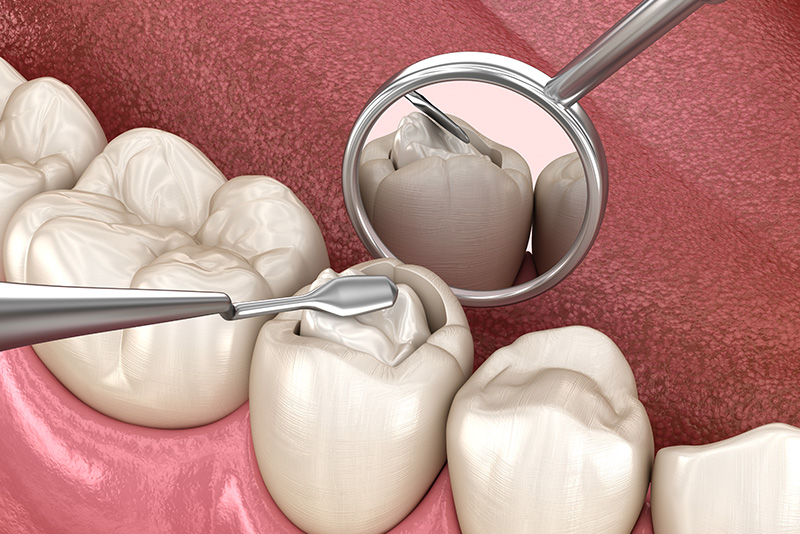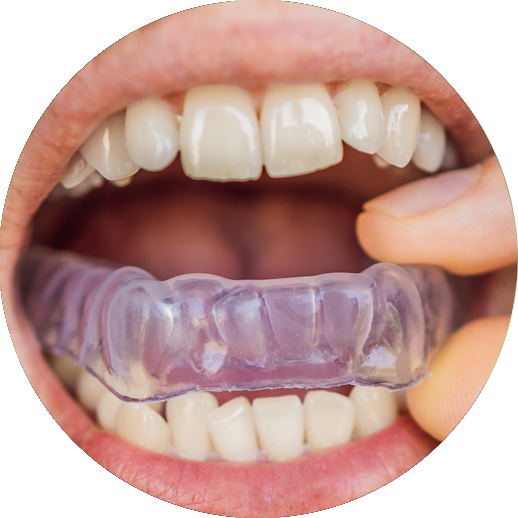


When a tooth is damaged by decay, a filling can help restore the tooth to its proper function and shape. If you have a tooth that requires a dental filling, we will first remove the decay, clean the affected area and then restore the tooth with tooth-colored filling material. This entire process can be completed in just one simple, comfortable visit to our office; however, if multiple restorations are needed, you may need more than one appointment.
We are pleased to provide tooth-colored composite fillings at Creekwood Dental Arts to ensure that your restoration is both effective and aesthetic. White fillings are made of a material called composite resin. Because this material is available in a range of colors, our dentists are able to match the shade of the resin to your natural tooth color. This means that your filling will blend in beautifully with your smile. Composite resin also forms a strong bond with the tooth structure, resulting in a lasting restoration. Furthermore, composite dental fillings typically require less tooth structure removal than amalgam (silver) fillings, so we can provide a more conservative restoration and preserve more of your natural, healthy tooth. We welcome you to call or visit our office today to learn more about getting a dental filling in Waco, TX and to set up your next visit with Dr. Miller, Dr. Green or Dr. Hinds.

Sealants help to prevent invasion by bacteria into these hard-to-clean areas.
Sealants are proven to reduce cavities by up to 70% in children and adolescents. Dental sealants are a clear or white resin material designed to flow into and seal the deep grooves in the chewing surface of children’s teeth. This helps to prevent invasion by bacteria into these hard-to-clean areas. Because the sealants are created from a clear or white resin, they blend in with your teeth and cannot be seen when you smile, speak or laugh. Our dentists most often recommend dental sealants in Waco, TX for the permanent back teeth (molars and premolars) because these teeth are common sites of decay. We usually suggest applying sealants on these teeth as soon as they grow in, which is typically between six and twelve years of age.
Sealants are inexpensive, painless and easily applied without anesthesia. The tooth is cleaned, dried and the sealant resin is applied to the chewing surface. The sealant is then allowed to dry. This usually requires just one short, pleasant visit with Dr. Miller, Dr. Green or Dr. Hinds at Creekwood Dental Arts. To learn more about dental sealants and our other preventive treatments, we invite you to call or visit our office today. We are dedicated to helping you keep your smile free from decay.

Custom bite guards are made of a durable, thermoplastic material molded to fit the shape of your teeth. They are crafted to give you a stable surface to bite against, help relax your jaw muscles and protect your teeth against unnatural biting forces. Occlusal guards are recommended for patients to treat TMJ disorders and for those who may clench or grind their teeth (bruxism). When left untreated, these conditions may cause chronic jaw and facial pain, frequent migraines and headaches and tooth damage. An occlusal guard helps to prevent these problems and relieve pain.
Sport mouth guards are made of soft plastic and are recommended to protect the jaw and teeth during physical activity and sports or other activities where your teeth or mouth may need protection. In addition, these guards protect the soft tissues of your tongue, lips and cheek lining. While sports mouth guards are most often recommended for contact sports such as football, hockey and wrestling, a sports guard can help to protect your smile during any type of physical activity. If you or your child is involved in sports and athletics, we encourage you to speak with our dentists, Dr. Miller, Dr. Green and Dr. Hinds, about getting a sports mouth guard in Waco, TX. Call us today at Creekwood Dental Arts to learn more and to set up your next visit.
I understand the information disclosed in this form may be subject to re-disclosure and may no longer be protected by HIPAA privacy regulations and the HITECH Act.
